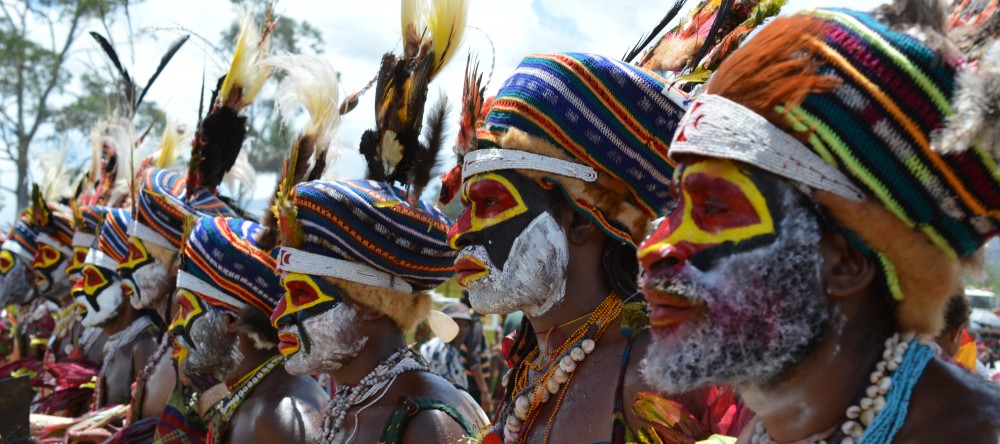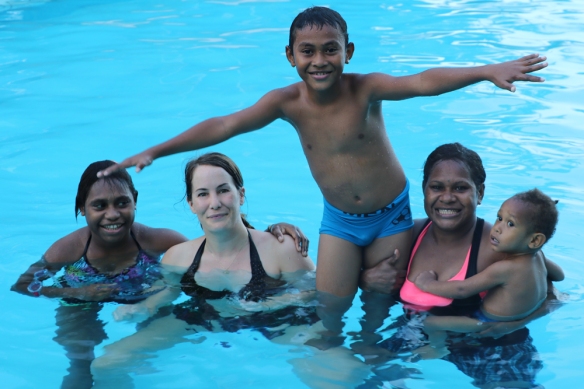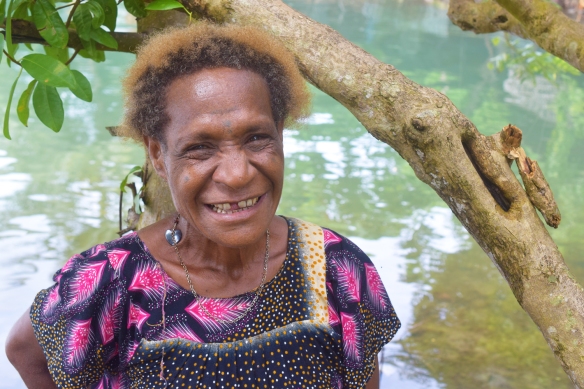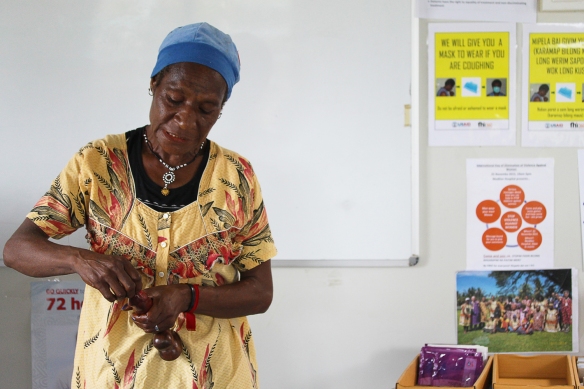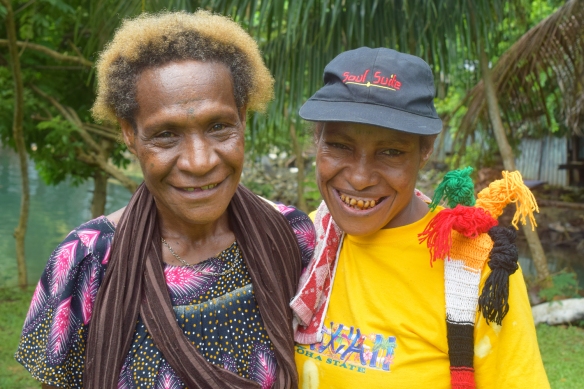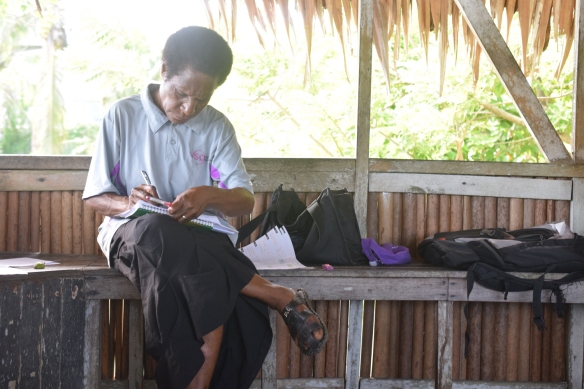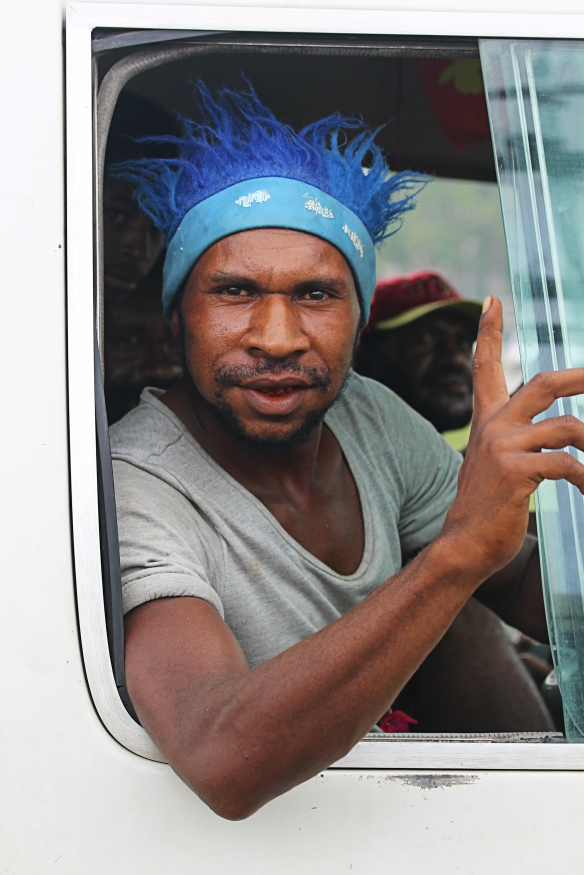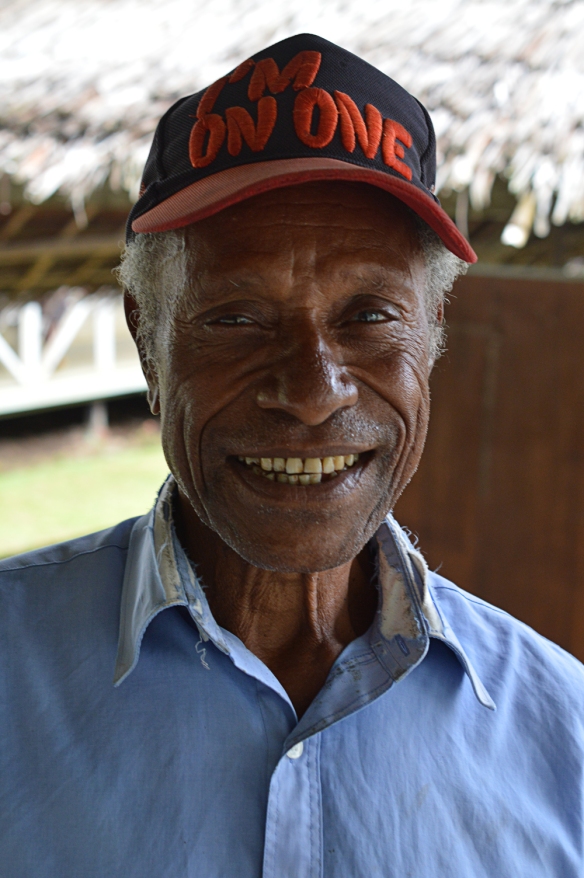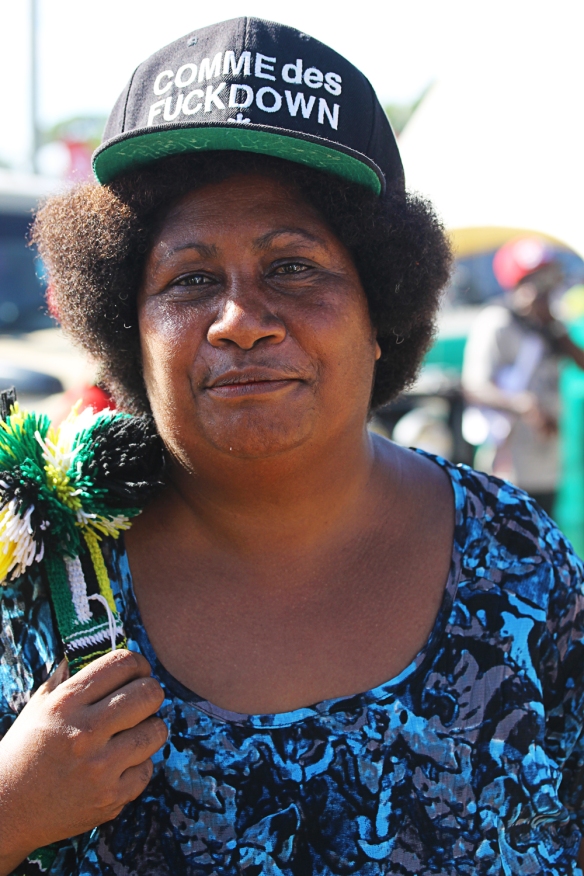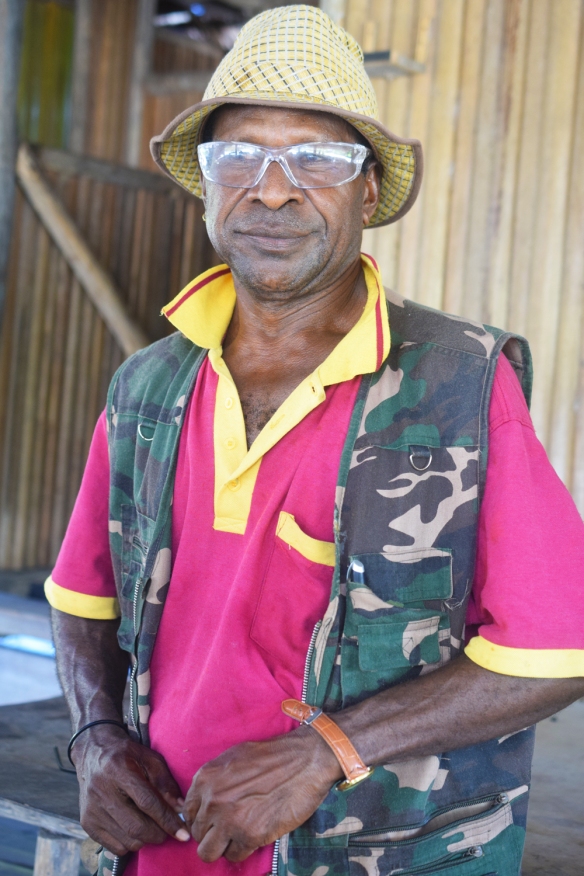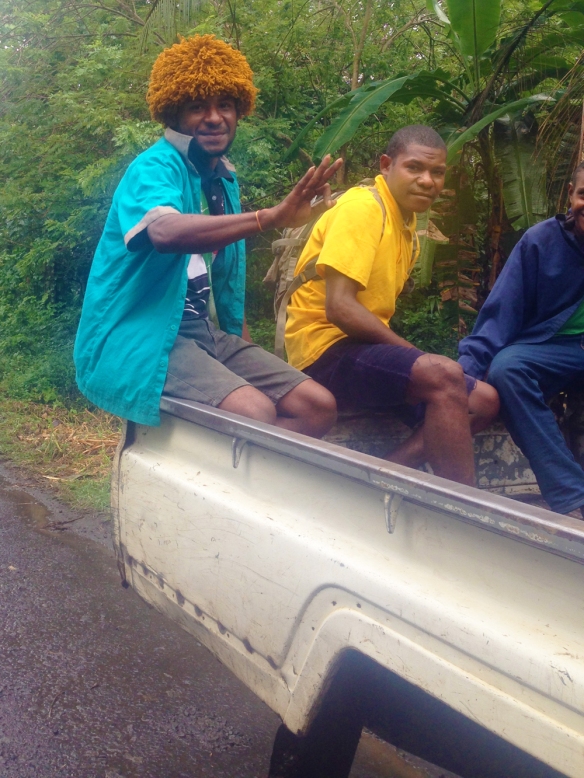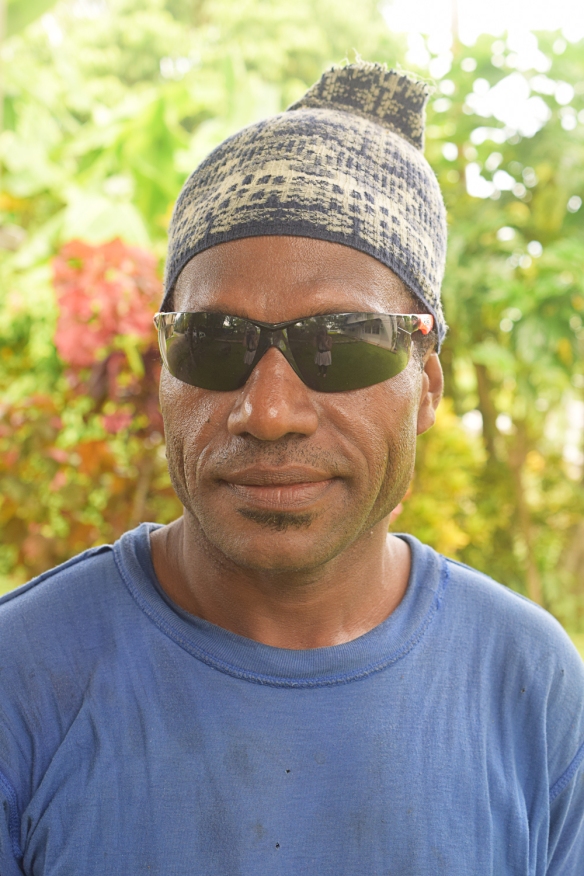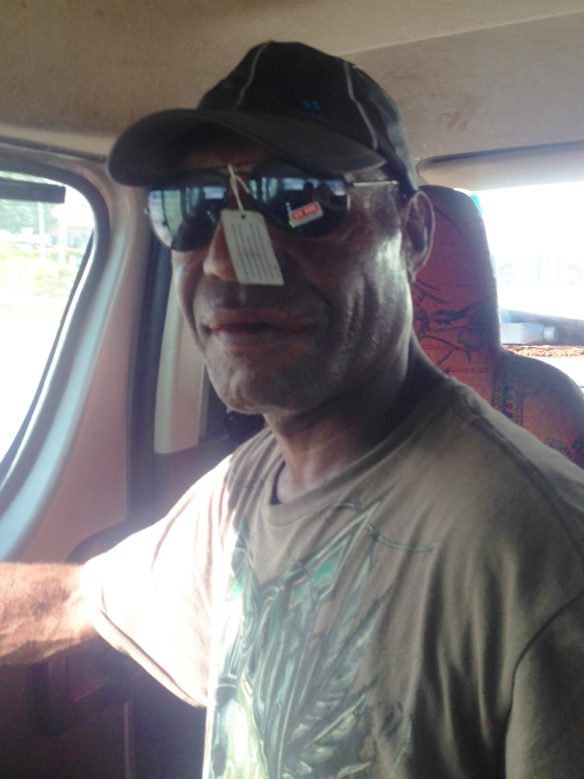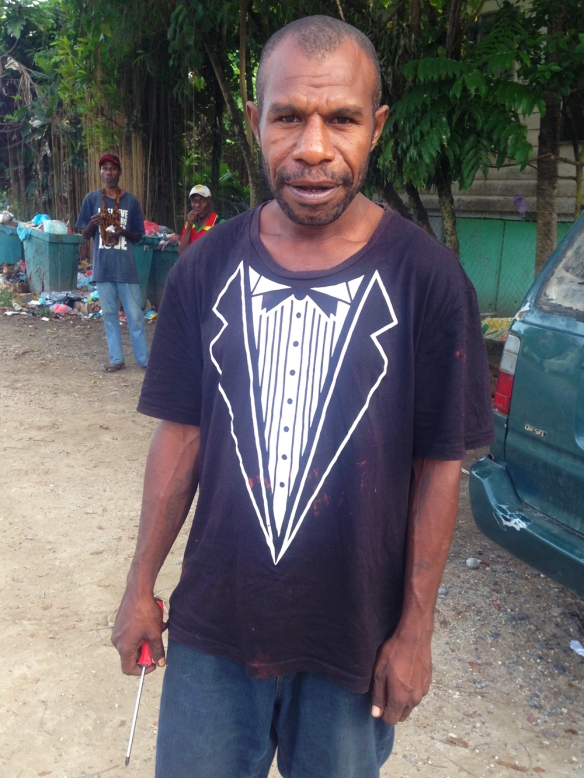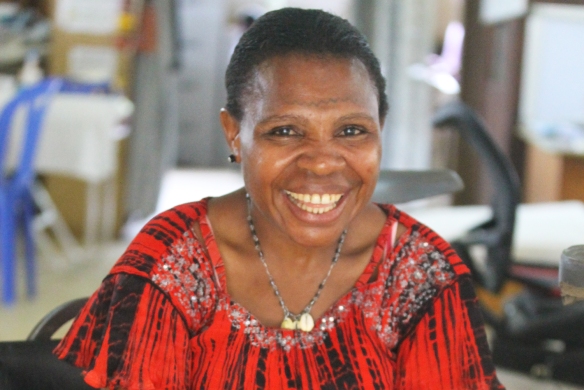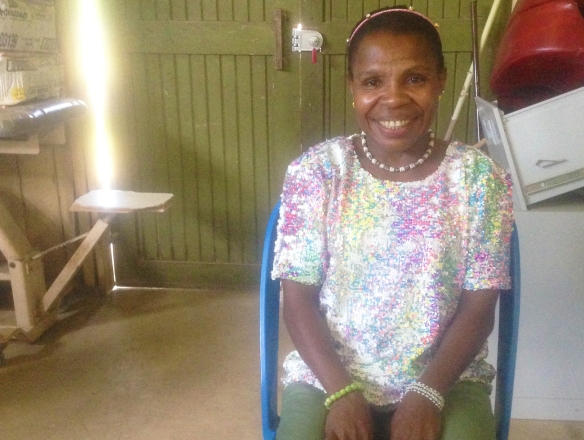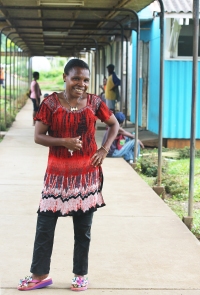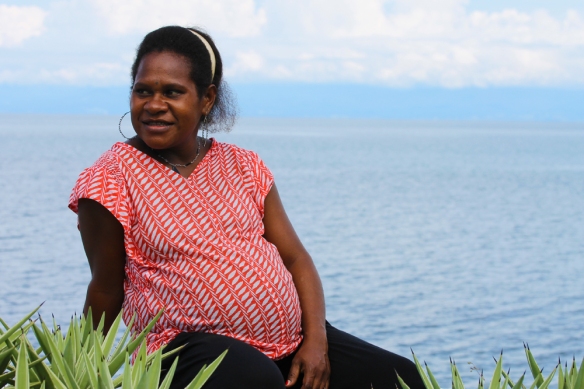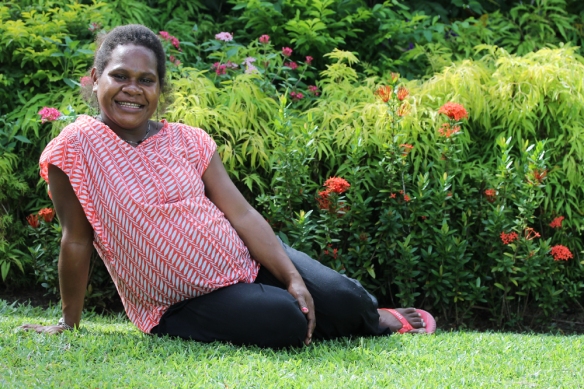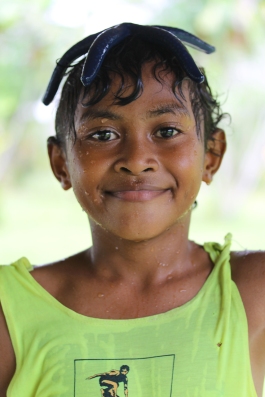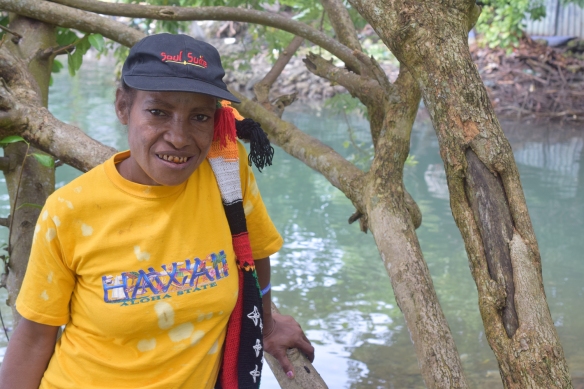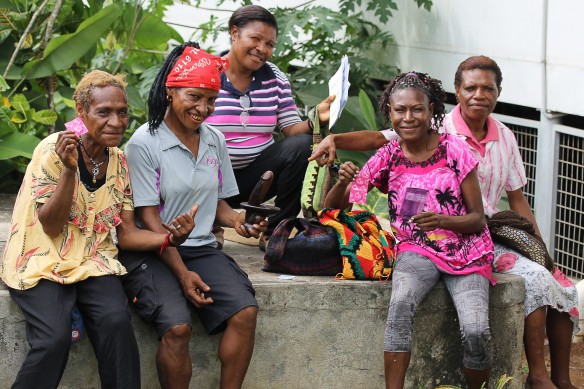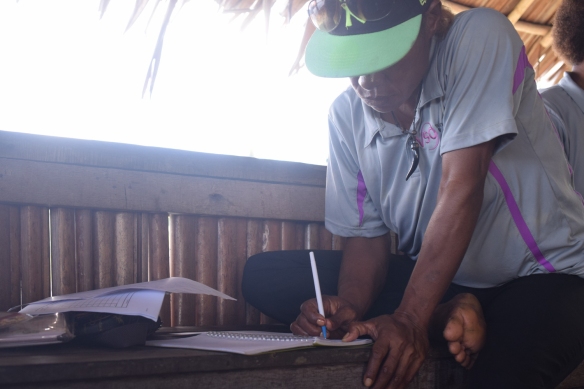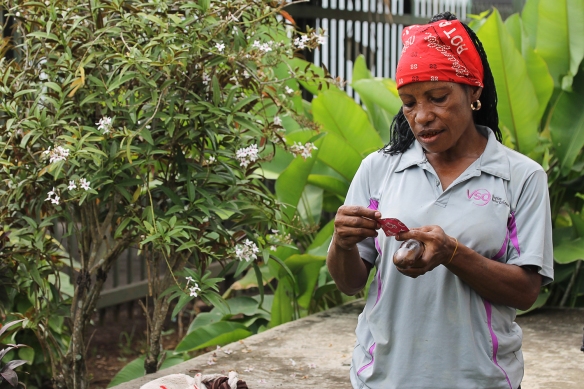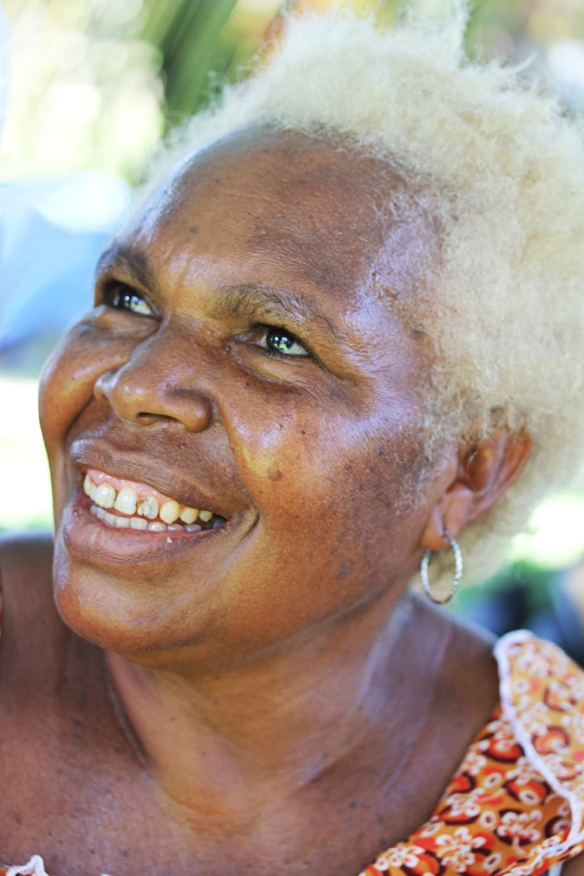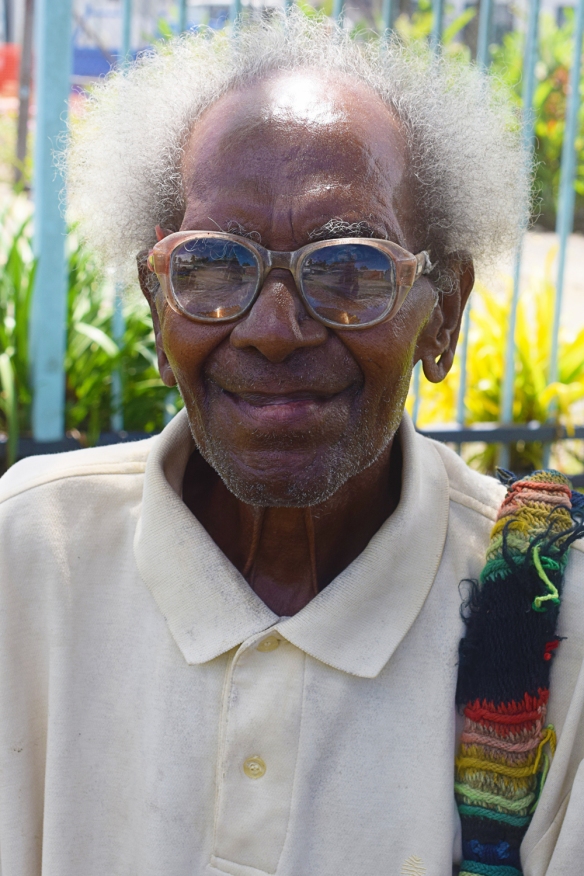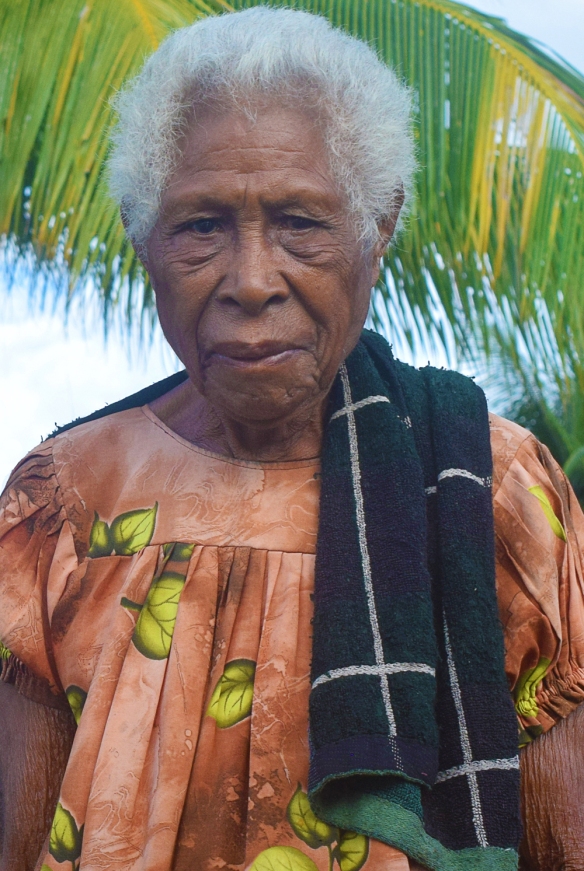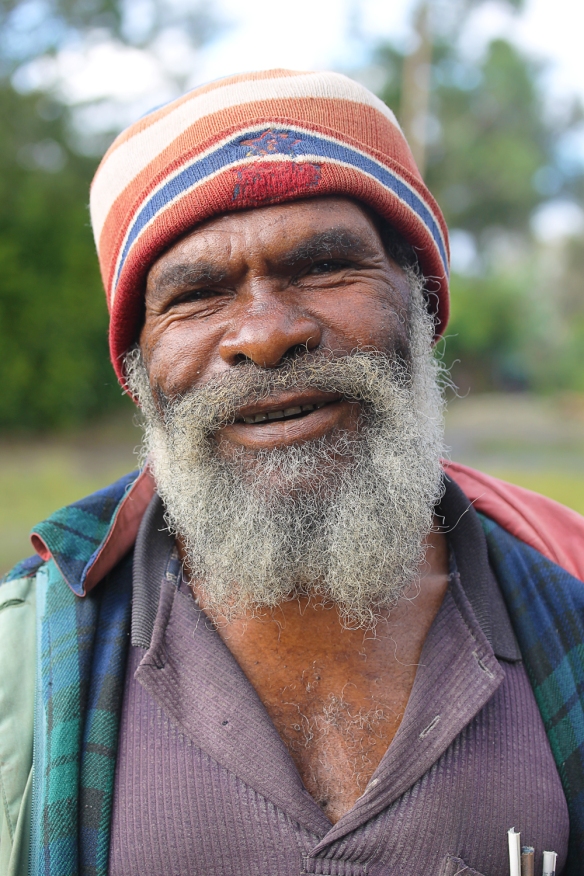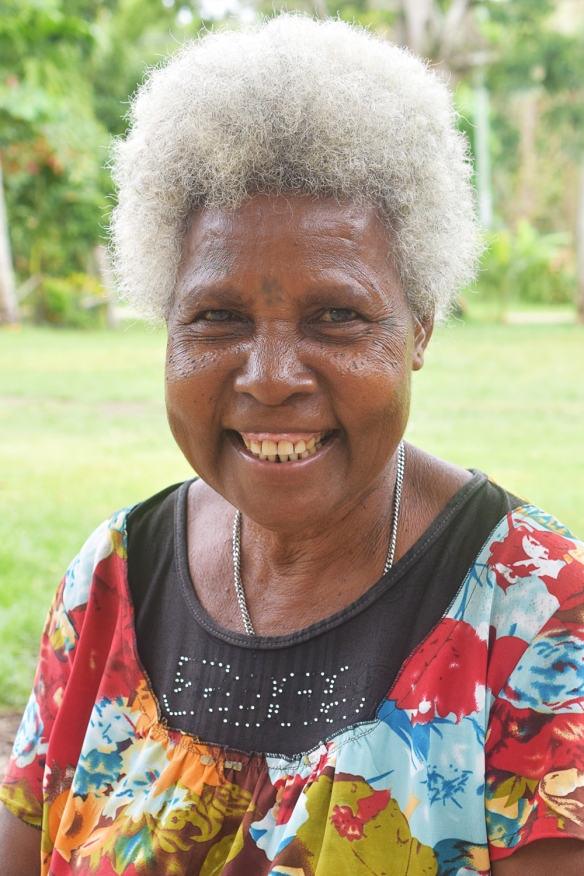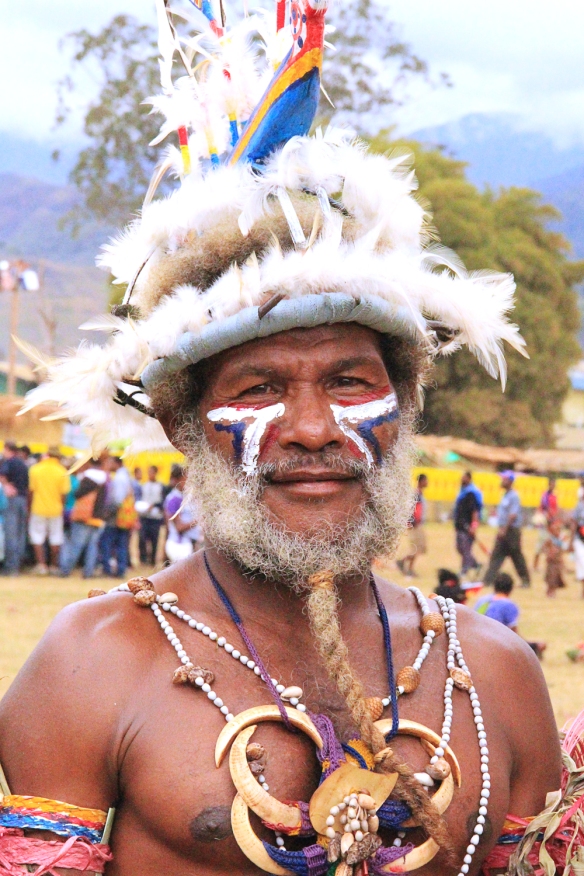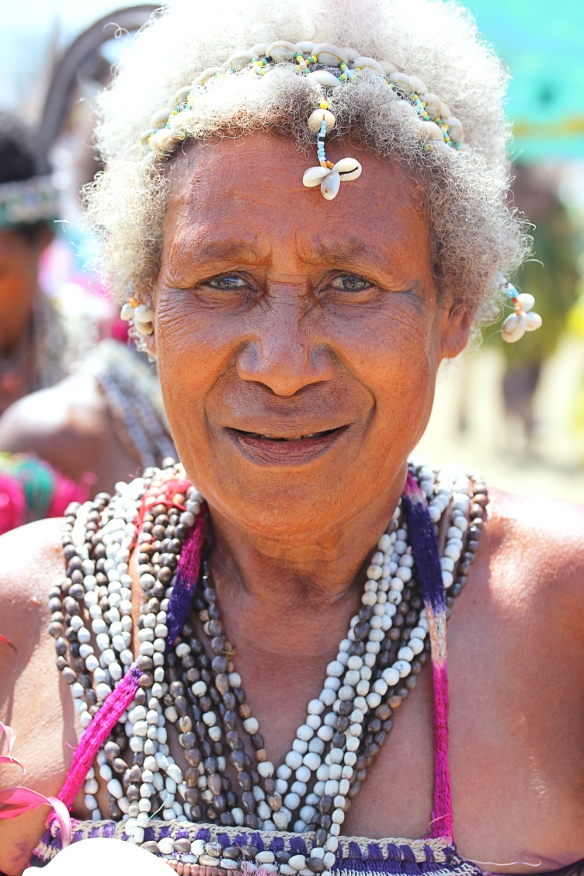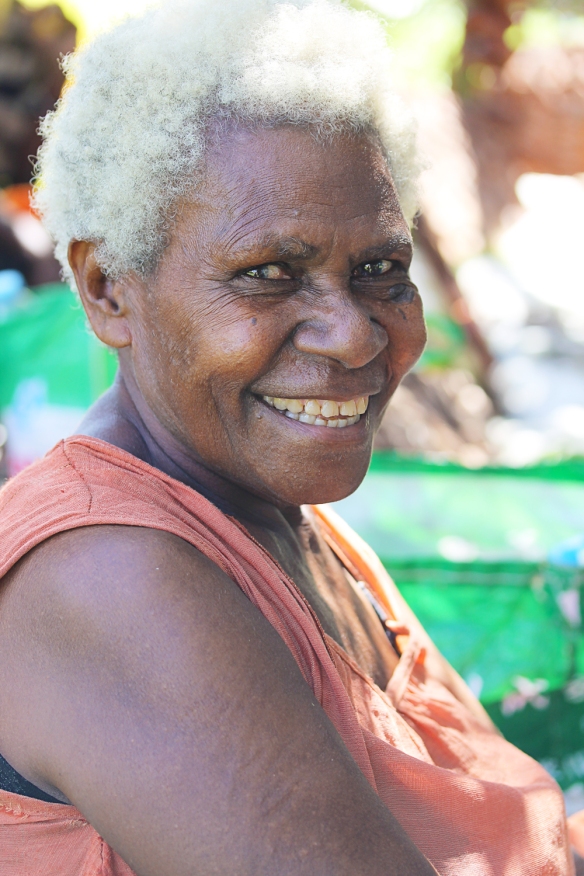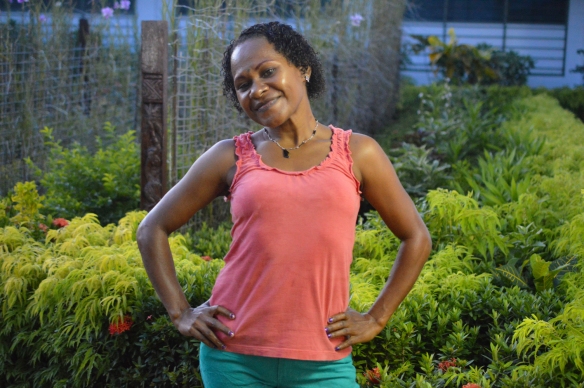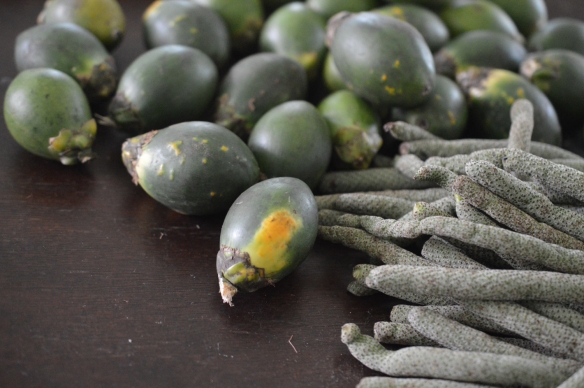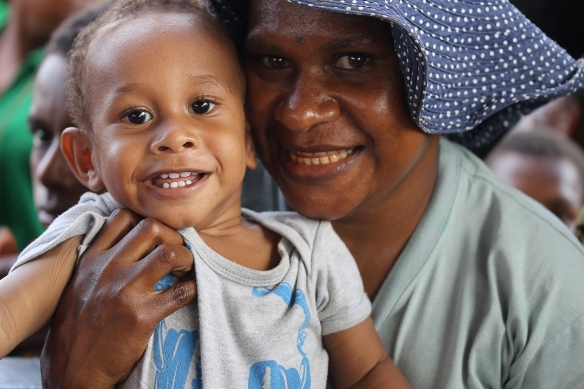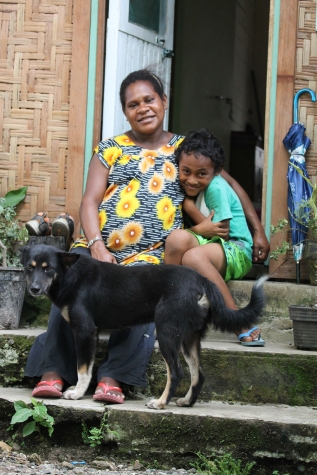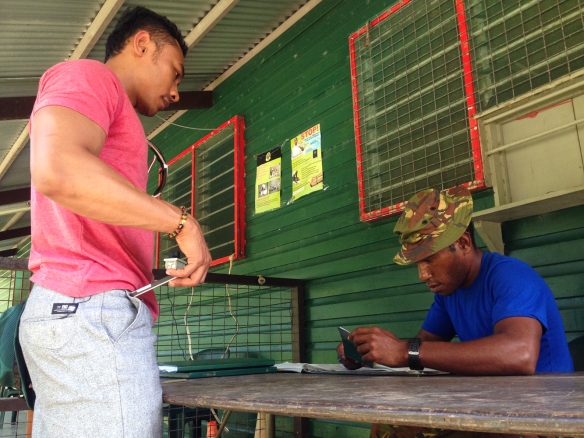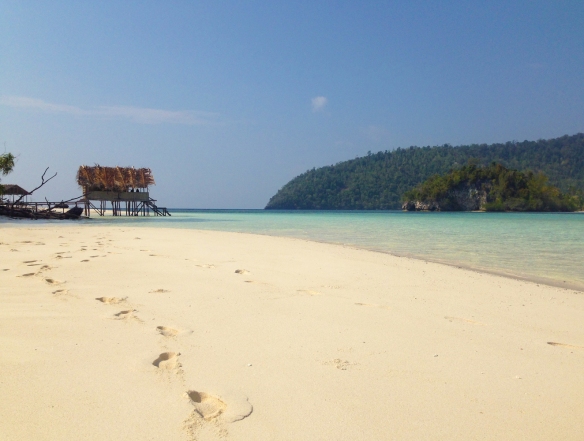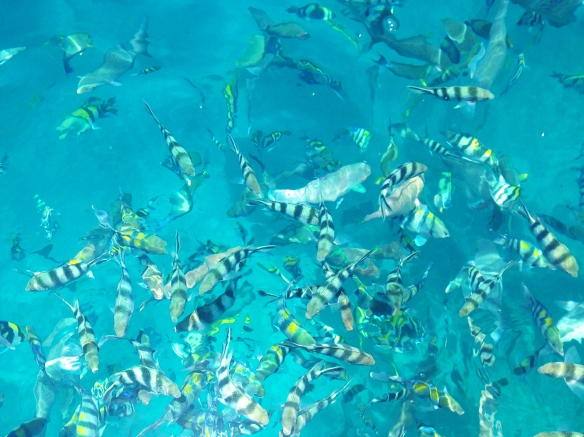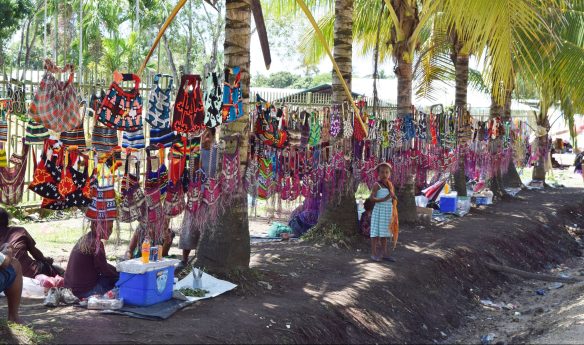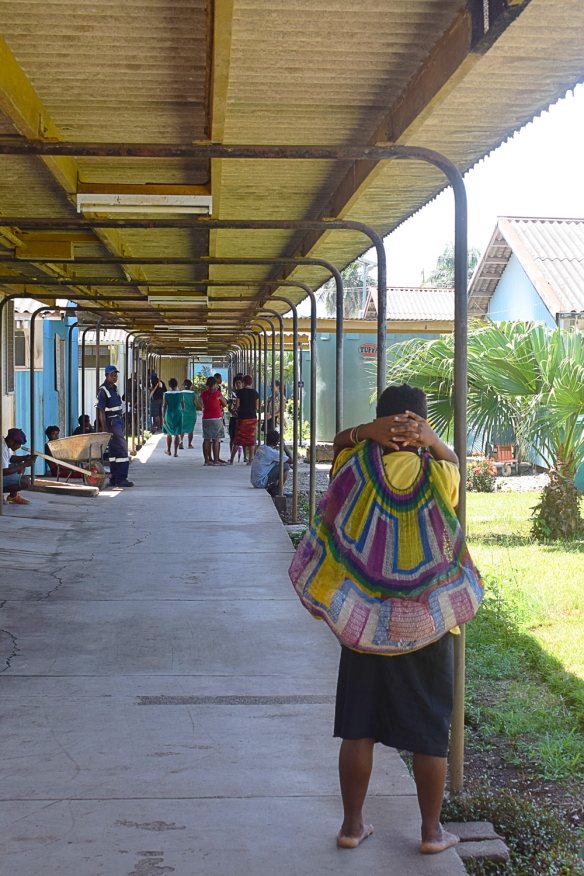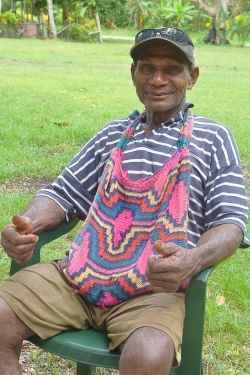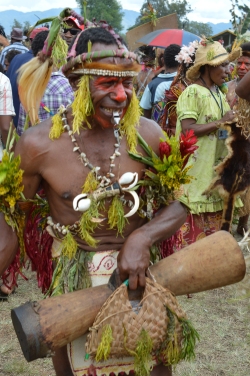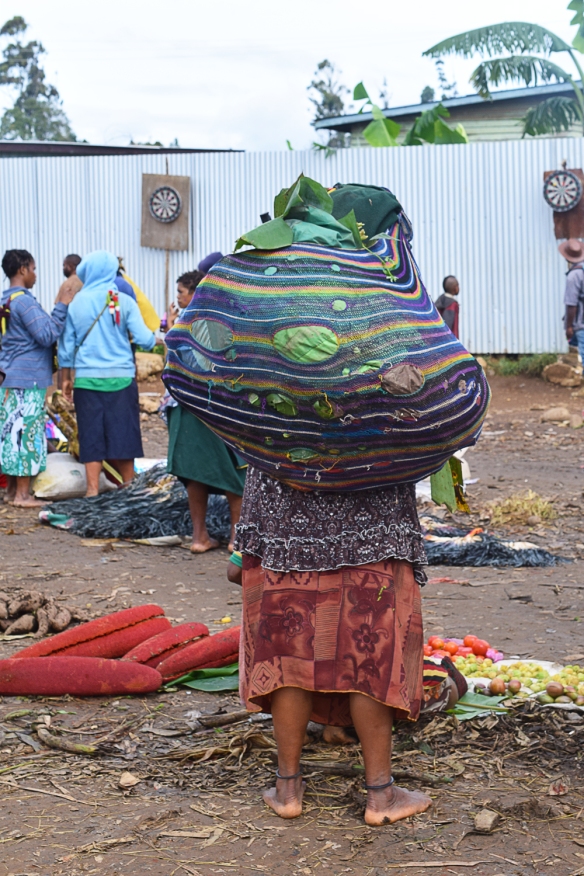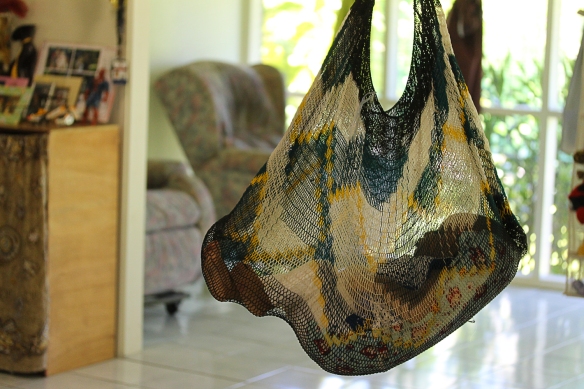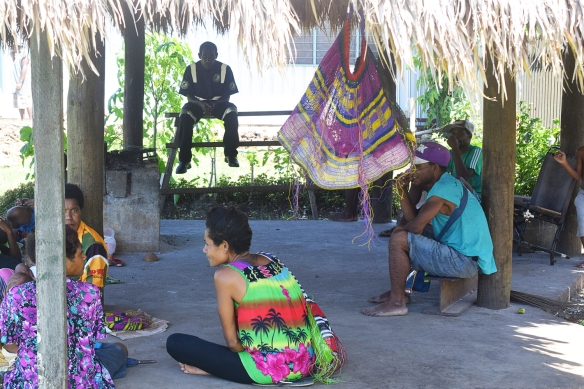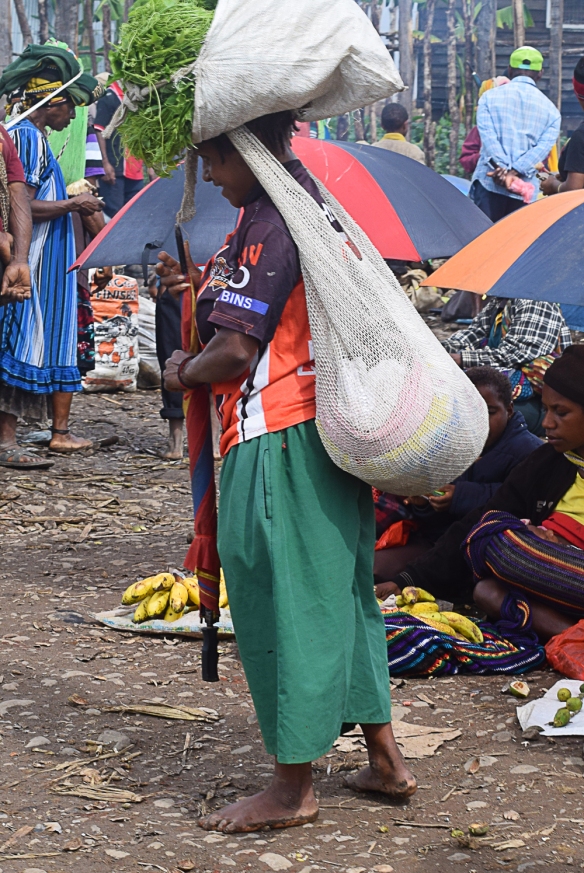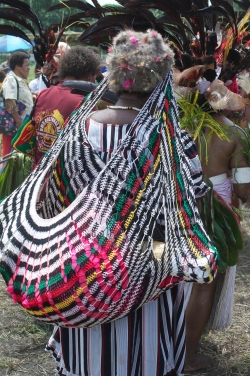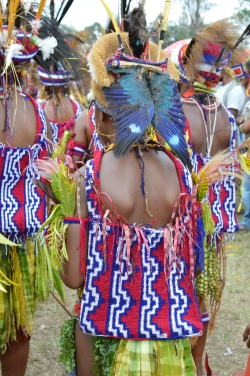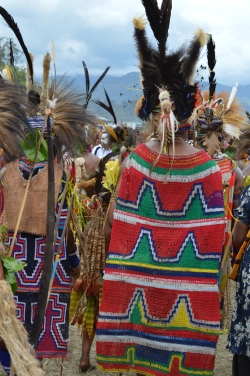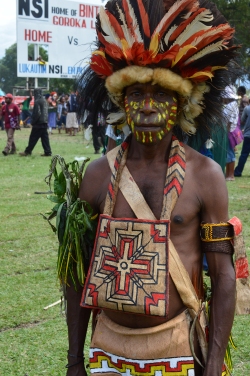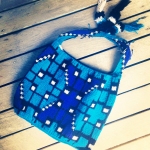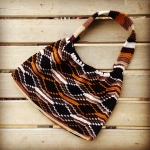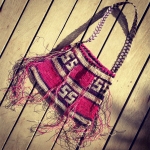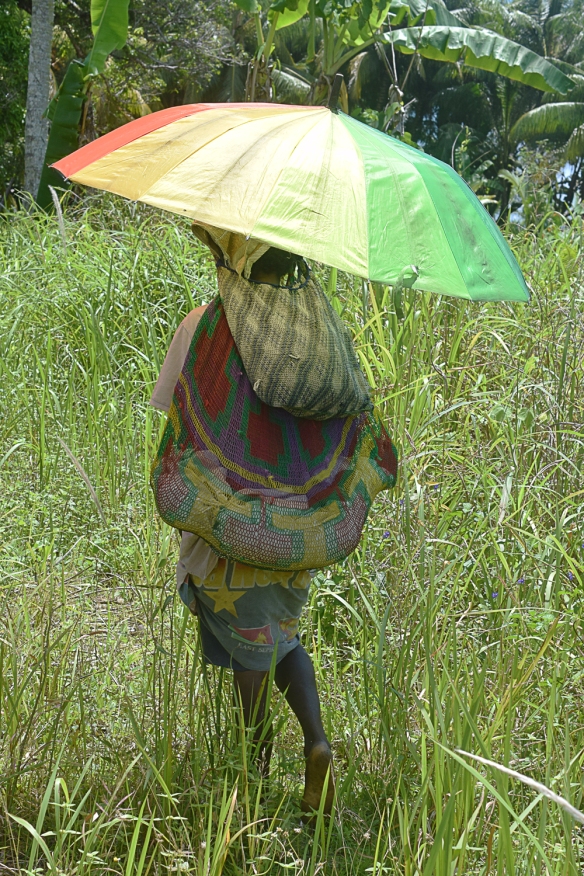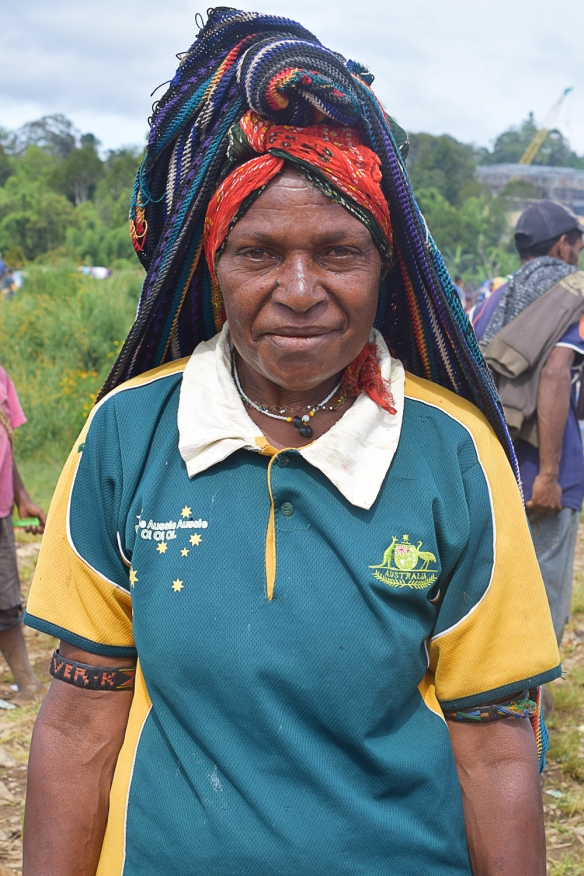The liklik meri from Lae: part one – in the beginning
The liklik meri from Lae: part two – growing up
This is the final part of the story about Angela Roypo, one of the strongest, determined women I have ever met. Although small in size, Angela’s personality is huge and fills a room. In the retelling of her bittersweet fairytale there were moments when both of our eyes were filled with tears, but her powerful story speaks volumes and shows that despite the biggest hurdles, you can still succeed and be an incredible role model and mother. Angela is an inspiration and although it may have take a while for this final part to come to fruition, I am sure that you will see why. This is the final part of her story…
The first thing that I thought when I knew that Fernando’s Dad had left us was that I had no idea what I would do next. All the hope and trust that I had in Peter had gone. It was a blessing that I was living with the Filipino, missionary couple as my small family was settled in their house. I decided that we would stay and I would help them as much as possible, humble myself, to earn our place in the house and stay under their care because of my son. At this point I didn’t have anywhere else to go or know what to do. I was just hoping and believing in the Lord that I might meet another man who would love me and accept my son as his own. I also hoped that I would be able to find a job one day, as a haus meri, or a cleaner, or anything for our survival.
 The Filipino couple were good parents to me and they adopted me into their family with open arms. Fernando and I had become part of their family and they didn’t want to see us with nowhere to go. The Filipino woman would share stories and insights with me. One day she told me that she had a philosophy that when Fernando was four someone would come to me with a work opportunity. But the Filipino lady was old and sick and never did see that day. When I took her to the hospital the day before she passed away, she told me that she wanted me to stay with her family.
The Filipino couple were good parents to me and they adopted me into their family with open arms. Fernando and I had become part of their family and they didn’t want to see us with nowhere to go. The Filipino woman would share stories and insights with me. One day she told me that she had a philosophy that when Fernando was four someone would come to me with a work opportunity. But the Filipino lady was old and sick and never did see that day. When I took her to the hospital the day before she passed away, she told me that she wanted me to stay with her family.
From there I sent Fernando to school and I knew that I had a really big responsibility so I had to work out how to get the money to make sure that he had a proper education. Since the old lady passed away I didn’t feel comfortable staying in the house just with her husband. I started to hear negative things from people about the fact that I was living with the Filipino man and I knew that I had to leave. I was preparing to take Fernando back to my village but the old man didn’t want me to go and paid for his school fees. I knew that if I took Fernando back to the village there would be no chance for him to have a good education so I decided to stay in the house with him in Madang for a little longer.
“Even though it was something that I had never done in my life, and even though it scared me and I didn’t really have confidence, my heart told me to try.”
Fernando did his kindergarten and when he turned four years old, the old Filipino ladies philosophy came true. One Sunday, a lady called Benny came over for lunch at the Filipino man’s house. During her visit she asked if anyone would massage her feet. I massaged her hands, then her feet and her back; she was testing us to see if any of us had potential to be trained in massage. From this massage she said that she would teach me so that when she goes away I can fill in for her. So I took the opportunity. Even though it was something that I had never done in my life, and even though it scared me and I didn’t really have confidence, my heart told me to try.
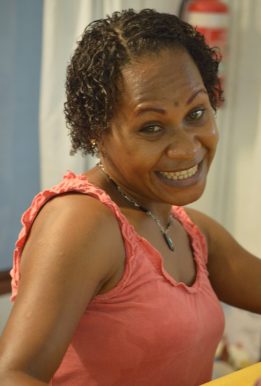 A few weeks later I came to visit Benny at her work at the Madang Lodge gym. She told me that as well as massage she would show me how to look after the gym and service the equipment. Each morning I would come in and learn what to do. I was so willing to learn something new and it was something that I never knew before. I didn’t know what fitness was or what massage was but when I started to do it I found it so fun and enjoyable. I had never really spoken to white people before and I was so nervous to begin with, but every day, new, white faces would come in and I would have to talk to them. This was the beginning of a new chapter in my life and I knew that I had to move forward and forget the pain of what had gone before.
A few weeks later I came to visit Benny at her work at the Madang Lodge gym. She told me that as well as massage she would show me how to look after the gym and service the equipment. Each morning I would come in and learn what to do. I was so willing to learn something new and it was something that I never knew before. I didn’t know what fitness was or what massage was but when I started to do it I found it so fun and enjoyable. I had never really spoken to white people before and I was so nervous to begin with, but every day, new, white faces would come in and I would have to talk to them. This was the beginning of a new chapter in my life and I knew that I had to move forward and forget the pain of what had gone before.
Everything happened so fast. In the process of working in the gym I learnt so much. I quickly became addicted to working out and I wanted to know everything! I was no longer afraid to talk to people or worried about people asking questions and how I would explain myself. At the same time I couldn’t speak English that well and I couldn’t read and write at all.
I met a lady called Judy, who came to the gym but also to the same church that I attended. Judy and Benny discussed secretly about the fact that I couldn’t read and write and Judy came to me and invited to me to her house for lunch. This was the first white lady that I could truly call my friend. When we had lunch she asked me what I wanted to do and I told her that I wished for many things! But one of the main wishes was that I could read, write and speak English clearly and well so that I can work anywhere. She offered to help me to learn if I was willing. We agreed to meet twice a week during my break and her lunch hour and she became my teacher. We did this for a few months together until she went home for a break. She passed me over to Tilly, another beautiful woman with a beautiful heart and she continued to teach me. I realised that there were so many wonderful people who were willing to help me.
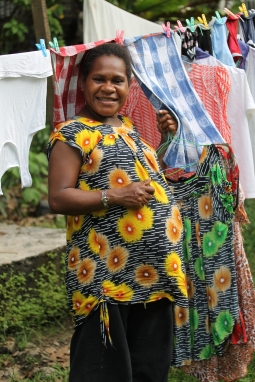 After this time with Judy and Tilly I was able to speak English really well and I was able to read and write properly. After all those years, this is how I finally got my education. Being able to read and write made me improve in my job. One day Benny said to me that she was planning to leave PNG and go to Australia for good and she said that her job could well be mine. She started to do intensive training with me on massage and before she left she spoke to the owner of the Lodge who interviewed me. I was so nervous as I had no papers or proof that I could do the job but Benny vouched for my skills. From then I worked for three months, completely on my own and nothing went wrong. From this point they told me that I was the one to run the gym and do the massages in the future. I started working in the gym full time in 2010 and since 2013 I have been managing the gym all by myself with little supervision and the management is really happy with the work that I do.
After this time with Judy and Tilly I was able to speak English really well and I was able to read and write properly. After all those years, this is how I finally got my education. Being able to read and write made me improve in my job. One day Benny said to me that she was planning to leave PNG and go to Australia for good and she said that her job could well be mine. She started to do intensive training with me on massage and before she left she spoke to the owner of the Lodge who interviewed me. I was so nervous as I had no papers or proof that I could do the job but Benny vouched for my skills. From then I worked for three months, completely on my own and nothing went wrong. From this point they told me that I was the one to run the gym and do the massages in the future. I started working in the gym full time in 2010 and since 2013 I have been managing the gym all by myself with little supervision and the management is really happy with the work that I do.
2015 was a big year of change in my life and I felt really big pain, deep inside my heart. During this year I was again told that I had to find somewhere to live, which is really hard in Madang where accommodation is scarce and expensive. It took a lot of looking but eventually my work found a safe place for us to stay that is walking distance to the gym. Then in October, I found out that I had been blessed again with the discovery that I was pregnant for the second time. I was so happy. It wasn’t expected but I was really joyful that Fernando would have another baby brother or sister. As I knew what to expect I was less frightened but I was scared about the challenges of raising two children as a single Mum. I worried about how I would keep them happy and make sure that they had everything that they need. But I chose to be strong, love my children and prove to them that I can do it no matter what.
“I was scared about the challenges of raising two children as a single Mum. I worried about how I would keep them happy and make sure that they had everything that they need. But I chose to be strong, love my children and prove to them that I can do it no matter what.”
In December, when I was three months pregnant I returned back to the village to visit my Dad. He was actually in hospital in the town rather than in the village as he needed medication, so he had no family members supporting him. I went to see him at Lae hospital, he was sleeping outside on the footpath. There was no bed for him as the hospital was full and his illness needed long-term care so they couldn’t accommodate him, but at least he was safe from the rain and sun. When I saw him sleeping, lying down on the floor it broke my heart. I never wanted to see my Dad like that.
 I was with him for one week at the hospital and during this time we decided to hire a land cruiser and take him back to Bulolo, half way from Lae to our village, to stay with my sister. I quickly came back to Madang to buy some big bags of buai (betel nut) to make some quick money, as hiring a car is really expensive. On the way back I sold the buai and headed to meet my Dad and sister. We spent a few days there and then I repeated the trip to get more cash. We hired another car and took him back to the village. I spent one week with my Dad cooking for him, talking to him, but he was in and out of consciousness and I knew that this was the last time that I would have with him. During this time he still gave me advice and encouragement. I said goodbye to him and returned back to Madang and Fernando.
I was with him for one week at the hospital and during this time we decided to hire a land cruiser and take him back to Bulolo, half way from Lae to our village, to stay with my sister. I quickly came back to Madang to buy some big bags of buai (betel nut) to make some quick money, as hiring a car is really expensive. On the way back I sold the buai and headed to meet my Dad and sister. We spent a few days there and then I repeated the trip to get more cash. We hired another car and took him back to the village. I spent one week with my Dad cooking for him, talking to him, but he was in and out of consciousness and I knew that this was the last time that I would have with him. During this time he still gave me advice and encouragement. I said goodbye to him and returned back to Madang and Fernando.
A couple of weekends later I got a call from a family member to say that my Dad wanted to drink a cup of coffee with me. The caller had climbed to the top of the mountain to get connection but I knew from the message that it meant that my Dad was about to pass away. I knew in my heart that it was time for him to go and on that Saturday I was called to say that he had died. The same Saturday that my Dad passed away I packed my things from my old house, with my big stomach and moved into our new home.
“The same Saturday that my Dad passed away I packed my things from my old house, with my big stomach and moved into our new home.”
This time posed great challenges for me. Even though my Dad was really ill, I just didn’t realise that one day he wouldn’t be there. I never promised him anything but the only person that I wanted to make happy in life was my Dad. I always dreamed of having my own home that I could bring him to, to show him love and look after him. I wanted him to know that he was the reason that I am strong from all of his teachings and this was in my heart for so long. At the end of 2015 it felt like half of my life had gone for good.
 But then on 22nd July, Eliel Poropet came into the world, assisted by one of the very good friends that I met in the gym, who reassured me that all would be well and it was. Now I have finally realised that I already have the life that can support me to look after my sons. Since working at the gym I have been able to support my sons, I have made many close friends that I never expected to have and learnt about so many different countries and cultures. With the experiences that I have had I’ve gained confidence, knowledge and understanding and now I can face the challenges in my life as a single mother. I always try to think positive thoughts and try to bring up both of my children to have a wider view of the world.
But then on 22nd July, Eliel Poropet came into the world, assisted by one of the very good friends that I met in the gym, who reassured me that all would be well and it was. Now I have finally realised that I already have the life that can support me to look after my sons. Since working at the gym I have been able to support my sons, I have made many close friends that I never expected to have and learnt about so many different countries and cultures. With the experiences that I have had I’ve gained confidence, knowledge and understanding and now I can face the challenges in my life as a single mother. I always try to think positive thoughts and try to bring up both of my children to have a wider view of the world.
I never look back and I don’t ask for help from either of the Father’s. I thought that I would get support from them as they are a part of the challenges that I face but this hasn’t been the case. It is such a painful thing but I know that it is not just me going through life like this, there are many other single mothers out there, both in PNG and the world, and I know, like them, that I am strong enough to do this on my own.
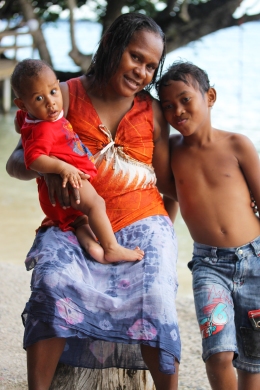 Through all of these experiences I have learnt so many things. I have gone through hell. I was like an empty book but now my pages are full and I have so many stories and things to tell. Even when I saw myself as a blank book I had this very small thought that I would become somebody, that I would own a business and make something of myself. I love facing challenges and working out how to succeed and move forward. If I didn’t live this life I wouldn’t be where I am now, I would probably be in the village with 10 children or even dead. From the humble life of a remote village girl, I have followed my dreams and I always remember to have faith, keep positive and take new opportunities. With this mindset I truly believe that anything is possible. My story shows that with great
Through all of these experiences I have learnt so many things. I have gone through hell. I was like an empty book but now my pages are full and I have so many stories and things to tell. Even when I saw myself as a blank book I had this very small thought that I would become somebody, that I would own a business and make something of myself. I love facing challenges and working out how to succeed and move forward. If I didn’t live this life I wouldn’t be where I am now, I would probably be in the village with 10 children or even dead. From the humble life of a remote village girl, I have followed my dreams and I always remember to have faith, keep positive and take new opportunities. With this mindset I truly believe that anything is possible. My story shows that with great
determination you can transform your life.
I am so thankful to Angela for sharing such personal parts of her life with me. We could have talked for far longer as she has such a beautiful way of sharing her experiences, and despite the challenges she always sees the positives. We both hope that her determination can inspire others, as for many women, particularly those in PNG, so many elements of this story will be familiar. I will be making Angela’s story into a book for her with some of the beautiful photos of her little family and one day she will share it with Fernando and Eliel, but for now, this story is for her, the liklik meri from Lae, and for you.
